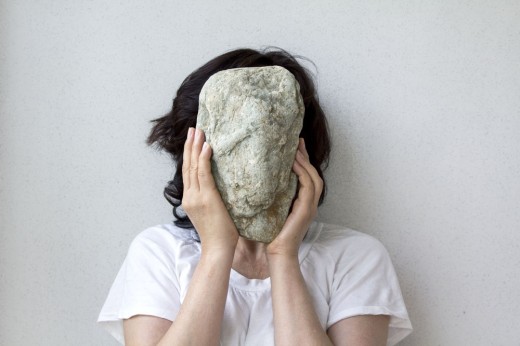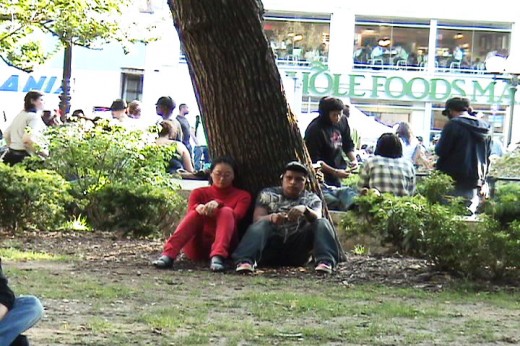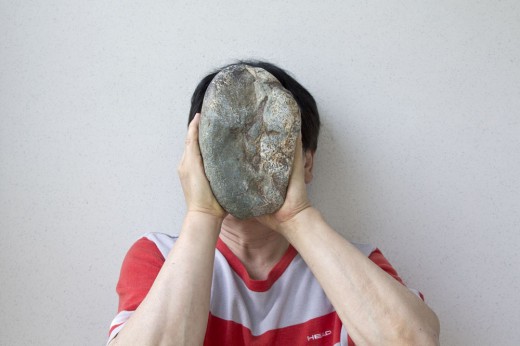Review by Robert Egert
@psychomotikon
It’s probably accurate to say that what we call the self is undergoing profound changes as a result of technology and globalization. Social networks entangle and confuse our professional, personal and familial relations. Meanwhile, political and geographic boundaries begin to appear antiquated in the face of a rapidly expanding global network.

"Self-portrait, Mother" by Kyoung eun Kang
Against this backdrop, Kyoung eun Kang explores the changing nature of the self in a world of blurred boundaries and cultural contradictions and makes this the subject of her multimedia installation Steps at HERE Arts Center.
Using video, sound, photography, and drawing Kang probes her own boundaries as a Korean artist living in the United States and her familial and cultural roots. The ten pieces that comprise the installation are distinct, but cumulatively they suggest ways for us to reexamine identity across personal and cultural lines. Kang’s subjects range from the genetic connections within her own family to the impact on identity of immigration status.
Growing up in a small village in rural Korea, Kang’s family had no plumbing and she remembers the sound of family members urinating into a small vessel. In River, Kang has layered recordings of each of her family members urinating. The resulting river of sound (more woodsy than bathroom) gives form to genetic lineage– creating a surprisingly evocative soundscape of a multigenerational family.
This intimate piece, placed at the crux of a stairway, serves as the emotional and genetic hub of the installation. From here, the other pieces radiate out to explore different aspects of individual identity and physical and social boundaries.

"Partners 3" by Kyoung Eun Kang
Partners explores the unique physical distance that individuals maintain in public spaces, while the subtext may be the strange loneliness of a crowd. In this three-screen video, Kang invades the personal space of strangers in Union Square Park, standing too close for comfort without any verbal interaction.
Self-portrait, Father/Self-portrait, Motherexplores the nature of memory in the context of facial recognition and identity. The piece features photographic portraits of Kang’s mother and father holding large stones that obscure their faces. Kang is forced to remember (and we are forced to imagine) the actual faces behind the stone masks. The more we look, the more nuanced the stone masks become, communicating real or imagined personal traits.

"Self-portrait, Father" by Kyoung Eun Kang
In Flower Man, Keoung explores the elusive presence of Mexican immigrants that work in Korean-owned markets selling flowers. Carefully avoiding revealing the faces of her subjects, we see each flower seller hand a flower to a Kang. As immigrants who prefer to keep their identity secret, the flower men have a subterranean identity. Flower Man portrays this subpopulation, that is often almost invisible, with simple dignity and clarity.
HERE
145 Sixth Ave. ?(enter on Dominick Street one block south of Spring), NY, NY 10013
212.647.0202
http://here.org/shows
Leave a Reply